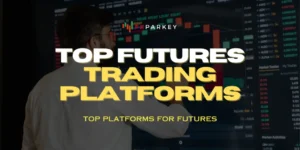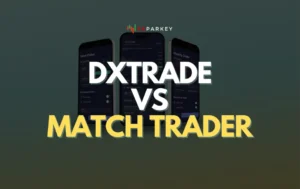Day trading has become increasingly popular, with more traders seeking the best online trading platforms to execute their strategies.
Whether you're a seasoned day trader or just starting, finding a platform that meets your specific needs is crucial.
According to a recent study by Forex Analytics, the global day trading market is projected to reach $12.9 billion by 2026, growing at a CAGR of 11.4% from 2021 to 2026.
With so many options available, choosing the right day trading platform can be a daunting task.
In this article, we'll explore some of the 18 best trading platforms for day trading of 2025, their key features, pricing, and pros and cons.
Top 18 Trading Platforms for Day Trading of 2025
| S/N | Trading Platform | Rating |
|---|---|---|
| 1 | Interactive Brokers | 3.7 (Trustpilot) |
| 2 | Webull | N/A |
| 3 | TradeStation | 4.6 (Trustpilot) |
| 4 | Fidelity | 4.3(Glassdoor) |
| 5 | AvaTrade | 4.6 (Trustpilot) |
| 6 | Exness | 4.6 (Trustpilot) |
| 7 | XM | 3.0 (Trustpilot) |
| 8 | tastytrade | 4.3 (Trustpilot) |
| 9 | Vantage | 3.4 (Trustpilot) |
| 10 | Skilling | 4.5 (Trustpilot) |
| 11 | Pepperstone | 4.5 (Trustpilot) |
| 12 | Charles Schwab | N/A |
| 13 | eToro | 4.3 (Trustpilot) |
| 14 | Merill Edge | N/A |
| 15 | Deriv.com | 4.5 (Trustpilot) |
| 16 | IC Markets | 4.8 (Trustpilot) |
| 17 | Trade Nation | 4.6 (Trustpilot) |
| 18 | Quotex | 4.5 (Trustpilot) |
Uncovering Day Trading
Day trading refers to the practice of buying and selling financial instruments, such as stocks, currencies, or commodities, within the same trading day. Unlike long-term investors who hold positions for weeks, months, or years, day traders aim to capitalize on short-term price movements by opening and closing trades within a single trading session.
The primary goal of day trading is to profit from the frequent fluctuations in asset prices that occur throughout the trading day. Day traders employ various strategies and techniques, such as technical analysis, chart patterns, and news-based trading, to identify potential trading opportunities and make quick decisions.
Day trading is often characterized by high trading volumes, as traders seek to take advantage of even the smallest price movements. This approach requires constant monitoring of the markets, as well as the ability to execute trades quickly and efficiently. Day traders typically use leverage, which allows them to control larger positions with a smaller amount of capital, amplifying both potential profits and losses.
1. Interactive Brokers
Interactive Brokers is a leading automated global electronic broker that provides direct access to trade execution and clearing services to institutional and professional traders worldwide.
Founded in 1977, the company offers an advanced trading platform that allows clients to trade stocks, options, futures, currencies, bonds, funds, and cryptocurrencies across 150 global markets from a single unified account.
With a strong focus on technology and innovation, Interactive Brokers has pioneered several trading tools and features, making it a popular choice among active traders and investors.
Key Features:
Pricing:
Pros & Cons of Interactive Brokers
Pros
Cons
2. Webull
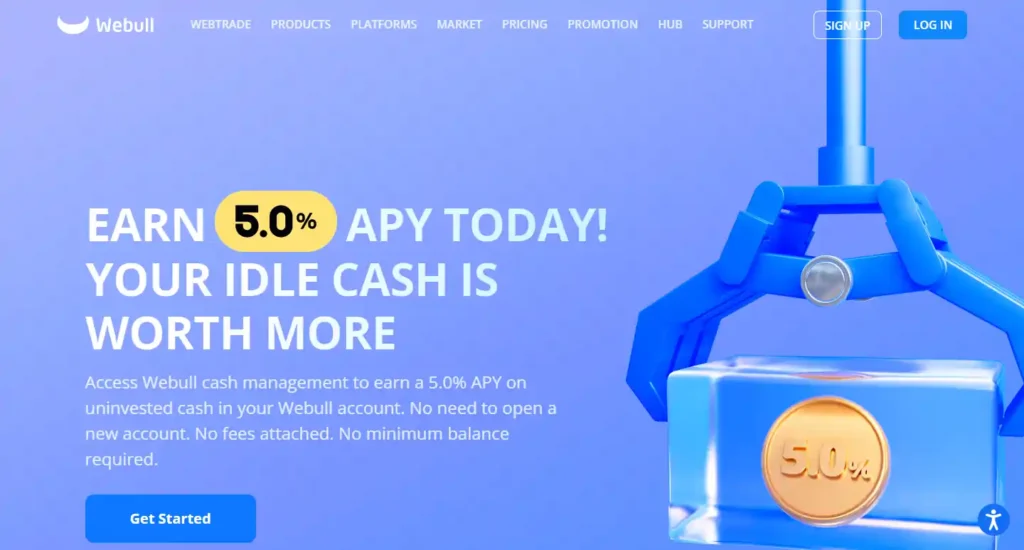
Webull is a commission-free trading platform designed for active traders and investors. It offers an intuitive mobile app and a desktop platform packed with advanced charting tools, technical indicators, and real-time data.
Webull caters to day traders with features like extended trading hours (4 AM – 8 PM ET), Level 2 quotes, and customizable workspaces. The platform supports trading in stocks, ETFs, options, and cryptocurrencies.
While Webull lacks some advanced order types and direct market routing, it provides ample tools for technical analysis, stock screening, and paper trading to test strategies risk-free.
Key Features:
Pricing:
Pros & Cons of Webull
Pros
Cons
3. TradeStation
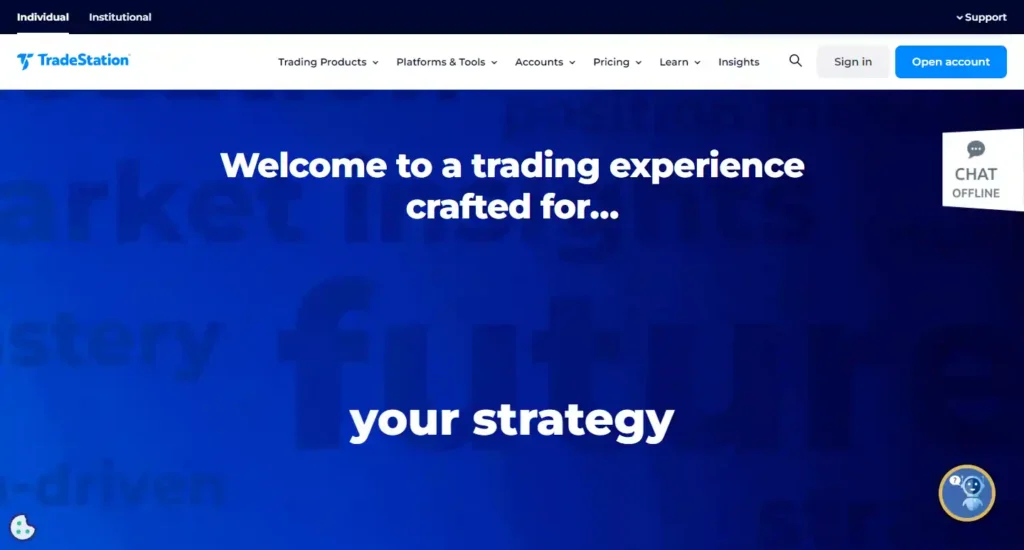
TradeStation is a comprehensive trading platform that provides advanced tools for executing trades, monitoring positions, analyzing markets, and developing custom trading strategies.
Designed for active traders and investors, TradeStation offers powerful charting capabilities, real-time data streaming, and a suite of analytical tools for backtesting and optimizing trading strategies.
With its EasyLanguage programming environment, users can create and automate their own custom indicators and trading systems.
Key Features:
Pricing:
Pros & Cons of TradeStation
Pros
Cons
4. Fidelity
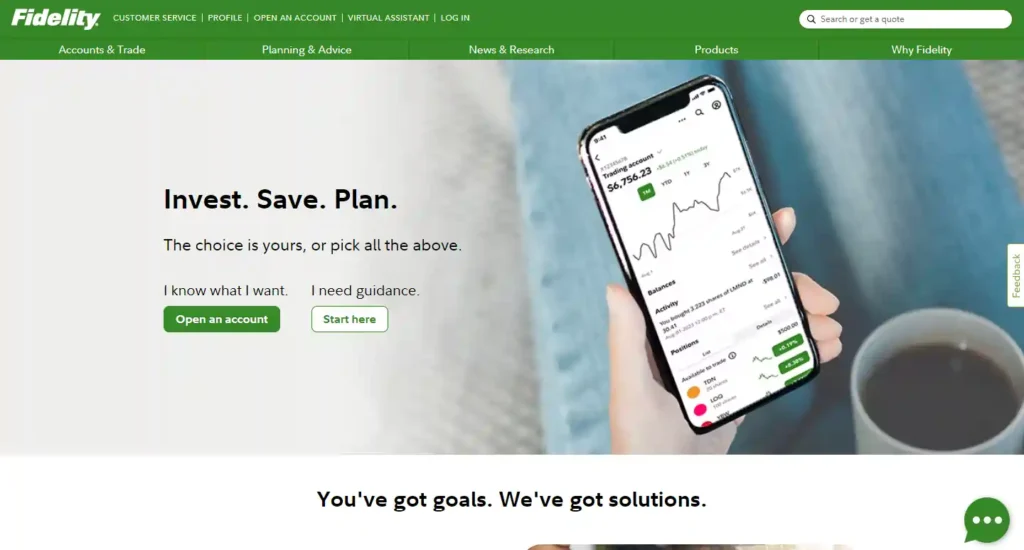
Fidelity is a leading full-service investment firm that offers a wide range of financial products and services, including brokerage accounts, retirement planning, wealth management, and investment advisory services.
With a strong emphasis on investor education and research, Fidelity provides its clients with a comprehensive suite of tools and resources to help them make informed investment decisions.
Key Features:
Pricing:
Pros & Cons of Fidelity
Pros
Cons
5. AvaTrade
AvaTrade is a leading online trading platform that caters specifically to day traders and active traders seeking a robust and user-friendly environment for executing trades across multiple asset classes.
With a strong focus on providing cutting-edge technology and advanced trading tools, AvaTrade has established itself as a go-to destination for traders seeking a seamless and efficient trading experience.
Key Features:
Pricing:
Pros & Cons of AvaTrade
Pros
Cons
6. Exness
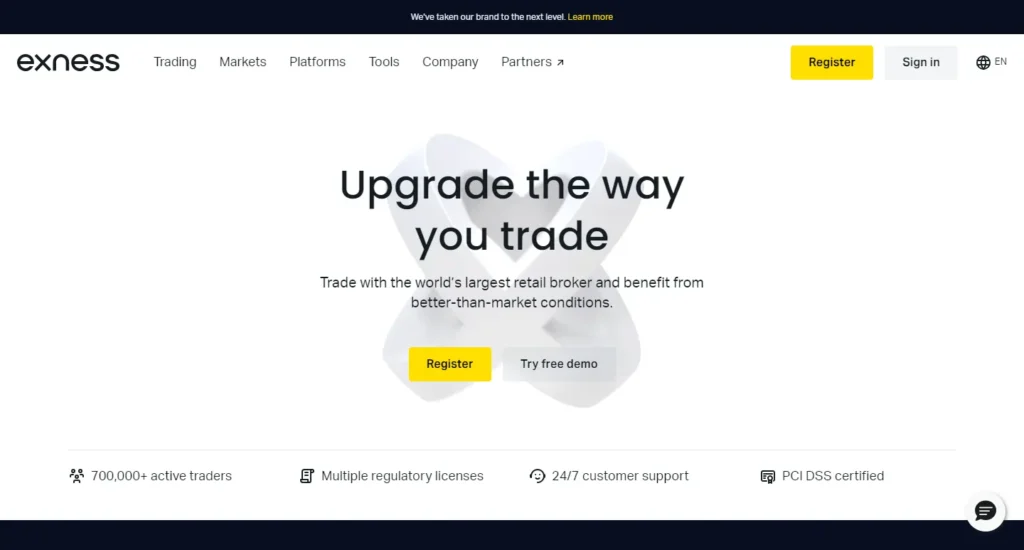
Exness is a leading global online trading platform that specializes in providing advanced tools and services for day traders and active traders across multiple asset classes.
Founded in 2008, Exness has established itself as a trusted and regulated broker, holding licenses from top-tier authorities like the FCA, CySEC, and FSCA.
With a strong emphasis on cutting-edge technology, Exness offers a suite of powerful trading platforms, including MetaTrader 4/5 and proprietary solutions, designed to cater to the needs of day traders and algorithmic traders.
Key Features:
Pricing:
Pros & Cons of Exness
Pros
Cons
7. XM
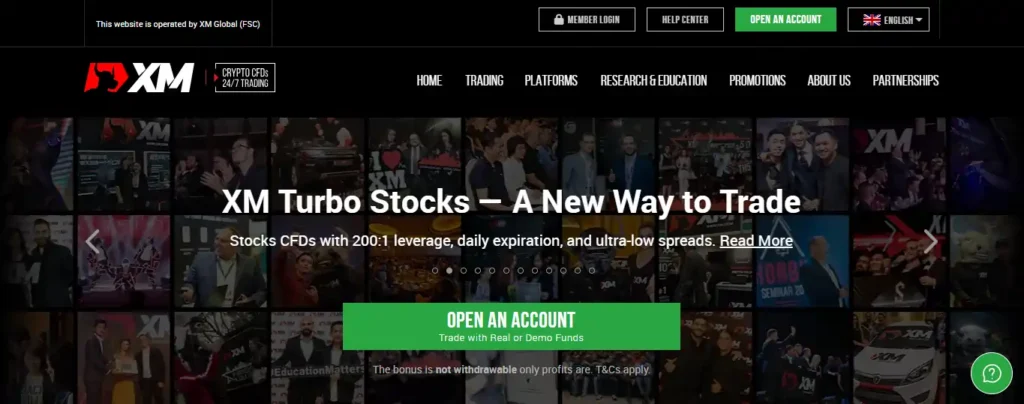
XM is a leading online trading platform that caters to both retail and institutional traders worldwide. Renowned for its user-friendly interface and advanced trading tools, XM offers a comprehensive suite of products, including forex, stocks, commodities, and cryptocurrencies.
With a strong emphasis on education and customer support, the platform provides a wealth of resources to help traders of all levels navigate the dynamic financial markets.
Key Features:
Pricing:
XM offers various account types with varying minimum deposit requirements, spreads, and commission structures to accommodate traders with different investment goals and risk appetites.
Pros & Cons of XM
Pros
Cons
8. tastytrade
tastytrade is an innovative online brokerage platform designed specifically for active traders, particularly those interested in options, futures, and cryptocurrencies.
Founded in 2017, tastytrade offers a suite of powerful trading platforms packed with advanced tools like customizable layouts, interactive charting, Level 2 quotes, and automated trading capabilities.
The platform's unique features include the “Curve” interface for visualizing options strategies, “Quick Roll” for seamless position management, and a “Follow Feed” to track real-time trades from professional traders. With its focus on derivatives, tastytrade provides commission-free stock/ETF trading and highly competitive pricing for options and futures contracts.
Key Features:
Pricing:
Pros & Cons of tastytrade
Pros
Cons
9. Vantage
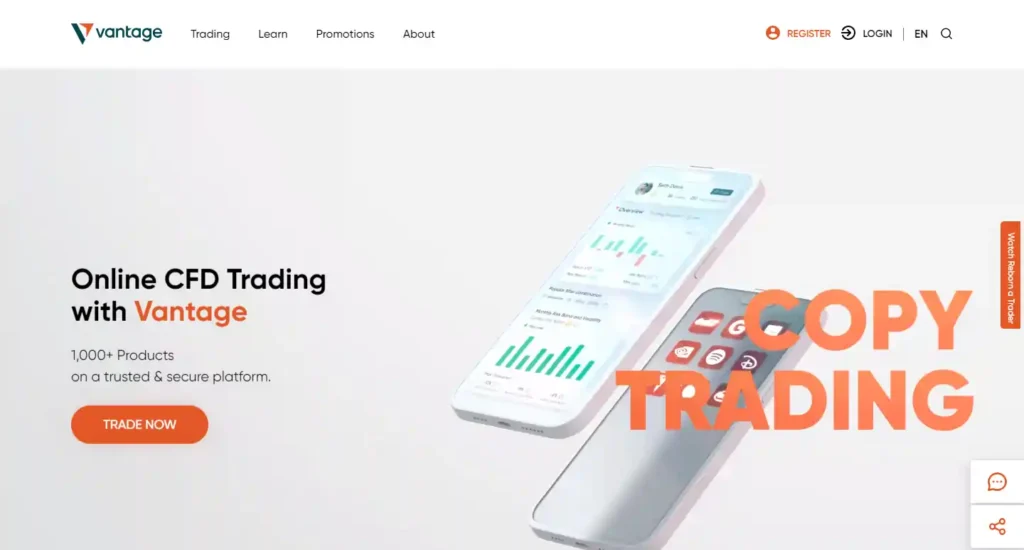
Vantage offers a robust day trading platform that caters to the needs of active traders. The platform is designed to provide a seamless trading experience with advanced tools, fast execution, and a wide range of tradable instruments.
Vantage's day trading platform is available through multiple channels, including MetaTrader 4 (MT4), MetaTrader 5 (MT5), and the proprietary ProTrader platform.
Key Features:
Pricing:
Pros & Cons of Vantage
Pros
Cons
10. Skilling
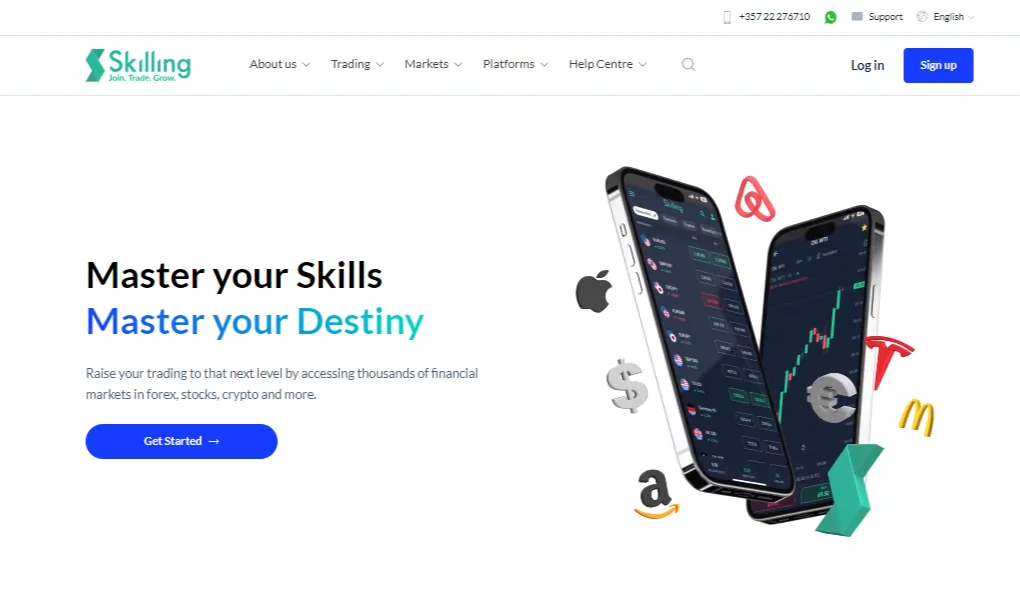
Skilling is a cutting-edge online trading platform that caters to the needs of both novice and experienced traders. Designed with a sleek and intuitive interface, Skilling offers a seamless trading experience across a wide range of financial instruments, including forex, stocks, cryptocurrencies, and more.
With its powerful analytical tools, real-time market data, and advanced charting capabilities, traders can make informed decisions and execute trades with precision. Skilling's commitment to transparency and security ensures a safe and trustworthy trading environment, making it a popular choice among traders worldwide.
Key Features:
Pricing:
Skilling offers various account types with different pricing structures to cater to traders' diverse needs and trading volumes. The platform provides competitive spreads, starting from 0.6 pips for forex pairs, and low commissions for stock and CFD trading.
Pros & Cons of Skilling
Pros
Cons
11. Pepperstone

Pepperstone is a renowned online trading platform that has garnered a reputation for its commitment to providing traders with a seamless and efficient trading experience.
Established in 2010, Pepperstone offers a diverse range of financial instruments, including forex, indices, commodities, and cryptocurrencies. With its cutting-edge technology and advanced trading tools, the platform empowers traders to navigate the markets with confidence and precision.
Pepperstone's dedication to transparency, competitive pricing, and exceptional customer support has solidified its position as a trusted choice among traders worldwide.
Key Features:
Pricing:
Pepperstone offers competitive pricing with low spreads starting from 0.0 pips on major forex pairs and commission-based pricing for CFD trading. The platform also provides various account types to cater to traders with different investment levels and trading strategies.
Pros & Cons of Pepperstone
Pros
Cons
12. Charles Schwab
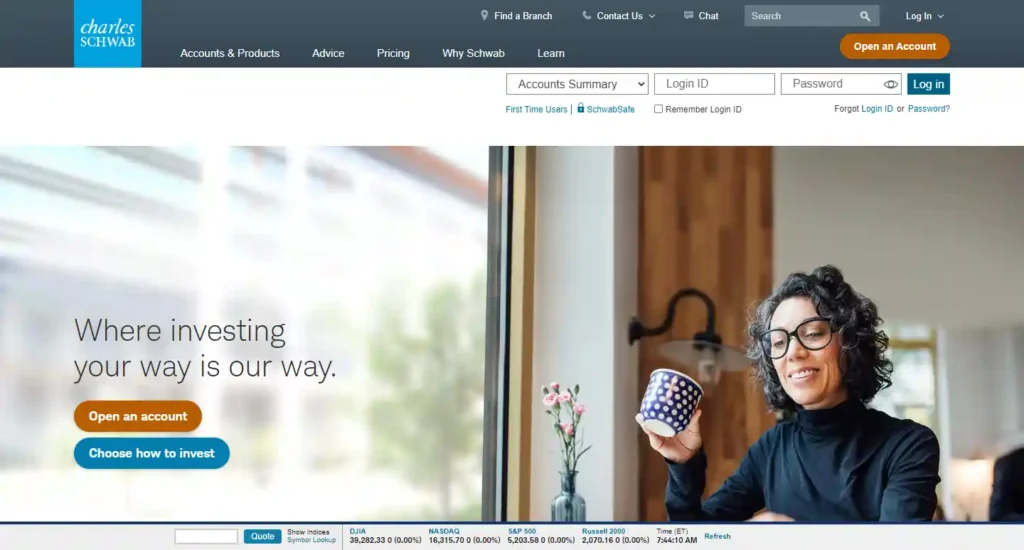
Charles Schwab is a renowned financial services company that offers a comprehensive online trading platform tailored for day traders and active investors.
With a rich history spanning over four decades, Charles Schwab has established itself as a trusted name in the industry, providing clients with a wide range of investment products and services.
The company's trading platform is designed to cater to the needs of both novice and experienced traders, offering advanced tools, real-time data, and seamless execution capabilities.
Key Features:
Pricing:
Charles Schwab offers competitive pricing with flat-rate commissions for stock and options trades and low fees for futures and forex trading. The platform also provides various account types and pricing structures to accommodate traders with different investment levels and trading strategies.
Pros & Cons of Charles Schwab
Pros
Cons
13. eToro
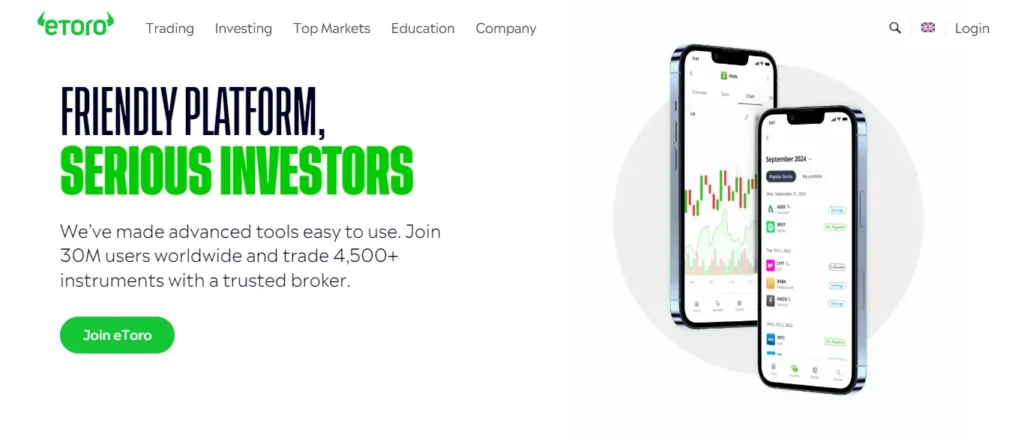
eToro is a leading social trading and multi-asset brokerage platform that revolutionizes the way people invest and trade.
Launched in 2007, eToro has become a global phenomenon, offering a user-friendly platform that caters to both novice and experienced traders. With its innovative features, such as copy trading and social trading, eToro empowers users to learn from and follow successful traders, fostering a collaborative investment community.
The platform provides access to a diverse range of assets, including stocks, cryptocurrencies, commodities, and more, enabling traders to diversify their portfolios and capitalize on various market opportunities.
Key Features:
Pricing:
eToro offers a commission-free trading model for most asset classes, with competitive spreads and fees. However, there are inactivity fees and withdrawal fees for certain account types and conditions.
Pros & Cons of eToro
Pros
Cons
14. Merrill Edge
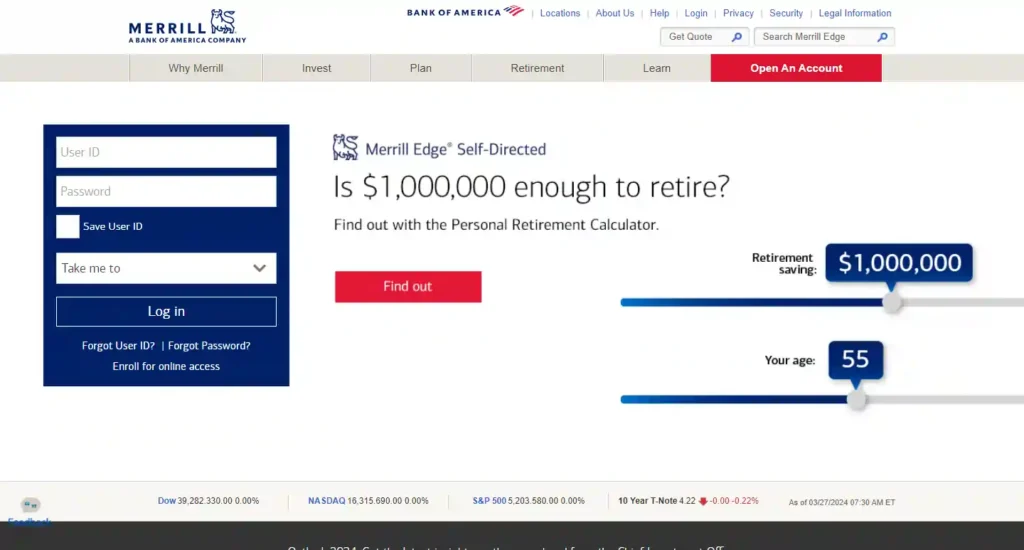
Merrill Edge MarketPro is a powerful trading platform that empowers active traders with advanced tools and real-time data. It offers customizable layouts, interactive charting with over 100 technical indicators, and streaming quotes and news.
Traders can access Level II quotes, place complex options trades, and monitor their portfolios in real time. MarketPro also provides research and analysis from BofA Merrill Lynch Global Research, Morningstar, and CFRA.
While not tailored for scalping or high-frequency trading, MarketPro supports day trading strategies with its intuitive order entry, watchlists, and alerts. However, it lacks direct market routing and advanced order types like conditional orders.
Key Features:
Pricing:
Pros & Cons of Merrill Edge
Pros
Cons
15. Deriv.com
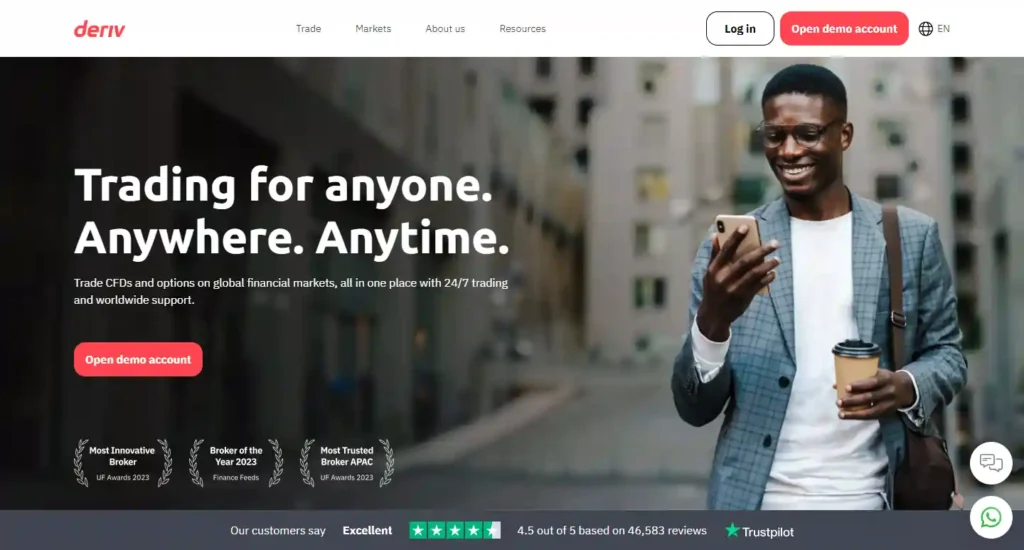
Deriv.com is an award-winning online broker offering a diverse range of trading products, including CFDs, multipliers, and proprietary synthetic indices. With a low minimum deposit of just $5, Deriv caters to traders of all experience levels.
The platform provides access to forex, stocks, cryptocurrencies, commodities, and uniquely derived indices that simulate real-world markets. Deriv offers three proprietary trading platforms – DTrader, DBot (automated trading), and the popular MetaTrader 5 (MT5).
Key Features:
Pricing:
Pros & Cons of Deriv.com
Pros
Cons
16. IC Markets

IC Markets is an award-winning online broker renowned for its low-cost trading environment tailored for day traders and scalpers. It offers raw spread accounts with some of the tightest spreads in the industry, averaging just 0.1 pips on the EUR/USD pair with a $3.50 commission per standard lot.
IC Markets provides ultra-fast execution speeds under 40ms and deep institutional-grade liquidity from over 25 pricing sources. Traders can access advanced trading tools like depth of market, one-click trading, and automated trading capabilities across multiple platforms including the popular MetaTrader 4/5 and cTrader.
With a global presence and top-tier regulation, IC Markets ensures a secure and transparent trading experience.
Key Features:
Pricing:
Pros & Cons of IC Markets
Pros
Cons
17. Trade Nations
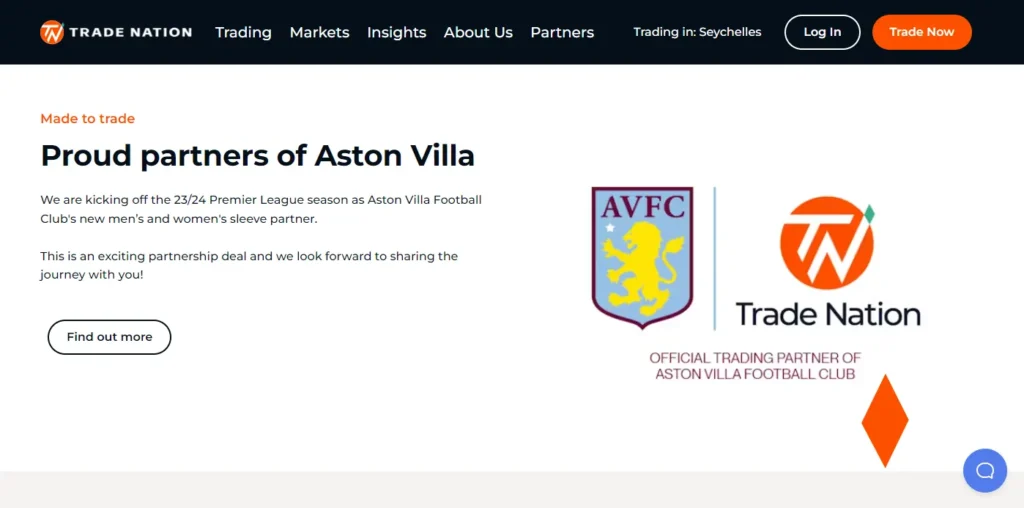
Trade Nation is an online broker offering a user-friendly trading platform tailored for day traders. Its key strength lies in providing ultra-tight fixed spreads, starting from 0 pips on major forex pairs like EUR/USD.
Trade Nation caters to active traders with advanced tools like depth of market, one-click trading, and automated trading capabilities across multiple platforms including MetaTrader 4/5 and cTrader.
With a global presence and top-tier regulation from FCA, ASIC, and others, Trade Nation ensures a secure and transparent trading environment ideal for day trading strategies like scalping and news trading.
Key Features:
Pricing:
Pros & Cons of Trade Nation
Pros
Cons
18. Quotex
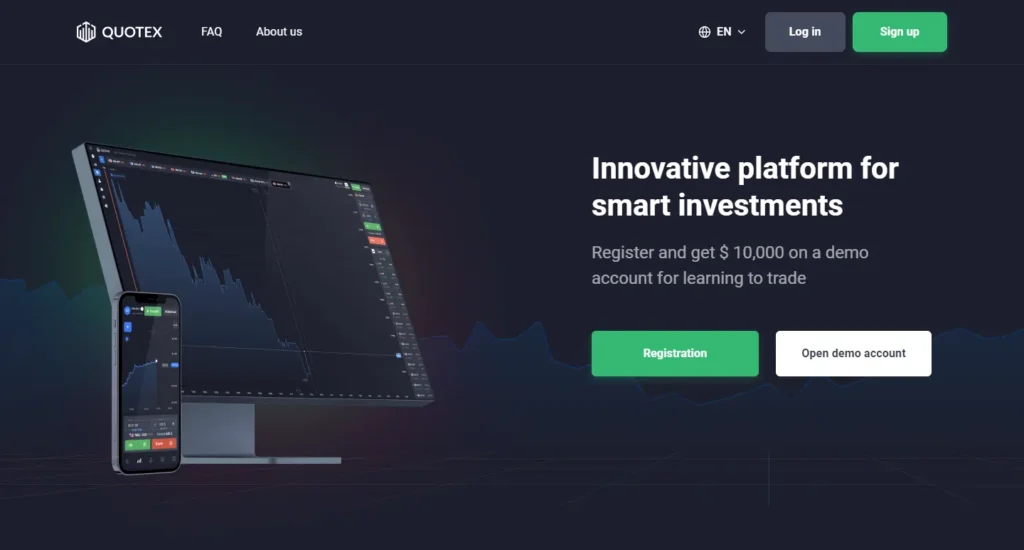
Quotex is a cutting-edge day trading platform that empowers traders with advanced tools and real-time data to navigate the fast-paced world of financial markets. Designed with a sleek and intuitive interface, Quotex offers a seamless trading experience, allowing users to execute trades with lightning-fast speed and precision.
With its robust analytical capabilities and customizable charting tools, traders can gain valuable insights and make informed decisions. Quotex's commitment to security and reliability ensures that users can trade with confidence, knowing that their transactions are safeguarded by industry-leading encryption protocols.
Key Features:
Pricing:
Quotex offers a range of pricing plans to cater to traders of all levels, from beginners to professionals. The basic plan starts at $9.99 per month, while the premium plan, which includes advanced features and dedicated support, is priced at $29.99 per month.
Pros & Cons of Quotex
Pros
Cons
Benefits of Day Trading in 2025
Take a look at some of the benefits of day trading in 2025!
- Potential for High Profits:
Day trading allows traders to capitalize on short-term price movements and volatility in the markets. With the use of leverage, successful day traders can potentially generate substantial profits from small price changes.
- No Overnight Risk:
Since day traders close out all positions before the market closes, they do not have to worry about overnight events that could impact prices and lead to losses on open positions.
- Compounding Returns Quickly:
By trading frequently and not holding positions overnight, profitable day traders can compound their returns more rapidly compared to longer-term trading strategies.
- Flexibility and Being Your Own Boss:
Day trading allows individuals to be their own boss, set their own hours, and have the flexibility to trade from anywhere with an internet connection.
- Potential Success in Any Market:
Day traders can potentially profit in both bull and bear markets by employing strategies like short-selling during downtrends.
- Access to Free Information and Resources:
There are numerous free online resources, educational materials, and trading platforms available for day traders to learn and practice their strategies.
Risks of Day Trading in 2025
- Potential for Substantial Losses:
Day trading involves high leverage and the risk of quickly losing more money than initially invested if trades go against you. The markets can move rapidly against your positions, leading to significant losses.
- Tax Implications:
Profits from day trading are treated as short-term capital gains and taxed at higher ordinary income tax rates compared to long-term capital gains rates for investments held over a year.
- High Transaction Costs:
Day traders incur substantial costs from commissions on frequent trades, which can eat into potential profits, especially for small accounts.
- Trading Against Professionals:
Day traders are competing against sophisticated institutional investors, high-frequency trading firms, and algorithms with superior resources, technology, and market knowledge.
FAQs on 18 Best Trading Platforms for Day Trading of 2025
How much Capital is required for Day Trade?
FINRA requires pattern day traders to maintain a minimum account balance of $25,000. However, many recommend starting with more capital.
What are the costs involved in Day Trading?
Costs include commission fees per trade (if applicable), software/data fees, payment for order flow, interest on margin loans, and short borrowing fees.
Are there any Tax implications for Day Trading?
Yes, any profits from day trading are taxed as ordinary income at your marginal tax rate rather than the preferential long-term capital gains rate.
What Trading Strategies are commonly used by Day Traders?
Popular strategies include scalping, momentum trading, news trading, and trading chart patterns/indicators.
How much time commitment is required for Day Trading?
Day trading requires being actively engaged during all market hours, which can mean 6-8 hours per day or more.
Can I day trade from a Mobile Device?
Yes, most brokers offer mobile apps that allow placing trades and monitoring positions on the go.
What risk management tools do Day Trading Platforms offer?
Common tools include stop losses, bracket orders, position sizing calculators, and margin requirement monitoring.
How can I practice Day Trading before risking real capital?
Most brokers provide paper trading or simulated trading accounts to practice strategies risk-free.
Bottom Line
So, what’s the bottom line?!
Platforms like Trade Nation, with its tight spreads and rapid trade execution, and Quotex, with its comprehensive analytical capabilities and user-friendly interface, stand out as frontrunners.
However, the true winner lies in finding the platform that aligns seamlessly with your trading style, risk appetite, and overall investment goals.
In this fast-paced world of day trading, staying ahead of the curve requires a platform that not only meets your current needs but also adapts to the ever-changing market dynamics.
Embrace the power of technology, and let the best day trading platforms of 2025 be your gateway to unlocking new opportunities and maximizing your trading potential.



